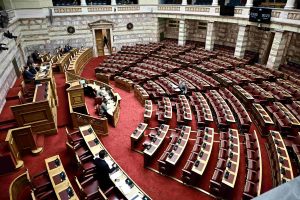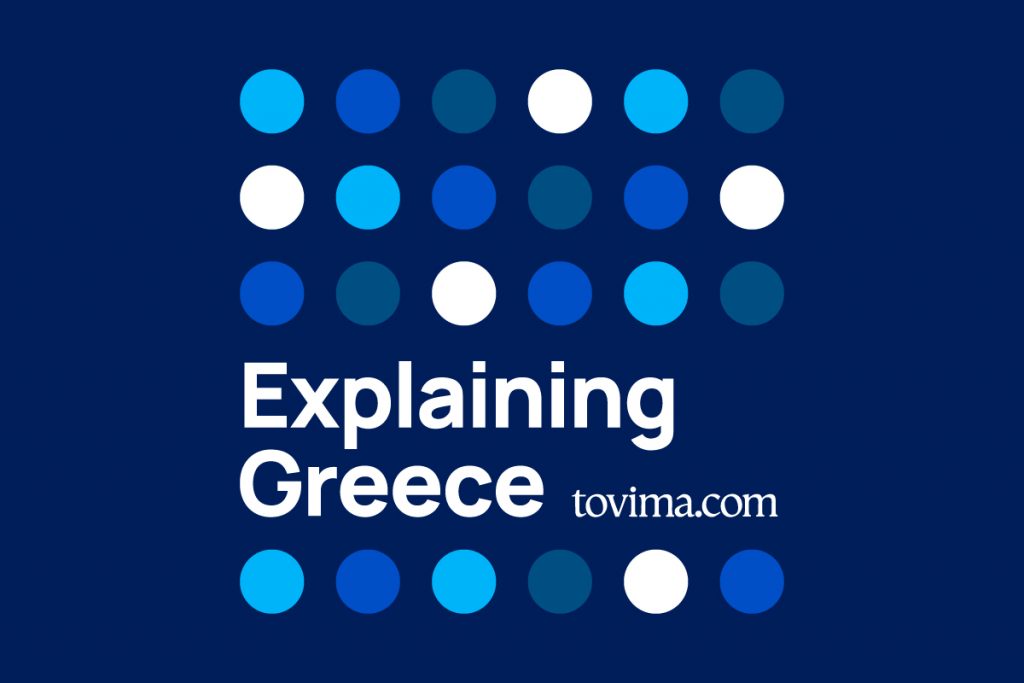A trio of ground-breaking reforms, at least by the often timid political standards of contemporary Greece, is apparently forthcoming this month, with the center-right Mitsotakis government set to table legislation with provisions that will irk one end of the political spectrum or the other.
The most prominent and contentious initiative is the legalization of same-sex marriage in the country. It is a distinct possibility that the legal framework governing adoption will also be amended accordingly. Having signaled a delay in tabling the relevant bill in the first days of the new year, Greek Prime Minister Kyriakos Mitsotakis is now expected to proceed. If leaks and sources are accurate, his government will soon be presenting a draft bill which foresees same-sex couples being given the legal right to adopt. The bill could be voted on by Parliament in February. Reportedly, the current legal framework for surrogacy will not be extended to same-sex couples—or that, at least, is the “spin” emanating from Mitsotakis’ Maximos Mansion government office.
A second prominent reform seeks to finally allow the establishment and state recognition of non-state, non-profit higher educational institutions in Greece. If successful, such a legislative remedy would end a half-century ban that made the country almost unique in refusing to sanction such colleges and universities on its territory.
However, Article 16 of the Greek constitution presents a formidable legal obstacle. It states that: “Education at (the) university level shall be provided exclusively by institutions which are fully self-governed public law legal persons. These institutions shall operate under the supervision of the State and are entitled to financial assistance from it…”
A legal “loophole” will reportedly be used to bypass a protracted and possibly untenable constitutional revision. This “somersault” around the constitution will be based on a 2020 decision by the EU Court of Justice, according to which “…the conditions introduced by Hungary to enable foreign higher education institutions to carry out their activities in its territory are incompatible with EU law.”
Also pending is legislation that will allow Greek citizens registered on election rolls to mail in their ballots. This will allow tens of thousands of recent expatriates who emigrated during the crisis years to vote in Greece’s elections, along with college students and temporary overseas residents.
Both reforms are bitterly opposed by the left and left-of-center Opposition, with the prospect of anything but public colleges anathema both to unions and associations representing academics and to party-affiliated college student groups, which in Greece enjoy a legal say in how their institutions are run. Even the student organizations of the ruling New Democracy (ND) party, the DAP, have been lukewarm in their response.
Nevertheless, opinion polls show more people support than oppose the bids to allow private universities and postal voting. PASOK, the once dominant socialist party, and a trio of small right-of-center parties in Greece’s 300-member Parliament may also come on board to allow both reforms to pass with larger majorities.
However, the leader of Greece’s old-guard Communist Party, the KKE, Dimitris Koutsoumpas, cited what he maintained was “international experience” confirming the party’s standing opposition to postal votes, since “there have been countless instances of forgery, electoral fraud, voter manipulation, loss of ballots, etc.”
The KKE general secretary was equally concise when expressing his party’s ideological hostility to non-state universities, saying: “We believe that the healthcare and education sectors should be exclusively public and absolutely free as a social good, with access to both independent of one’s pocket. We are therefore categorically opposed to the establishment of non-state universities, which are private in essence whatever the legal form in which they are established.”
Legalization of same-sex marriage center stage
Though he passed on legalizing same-sex marriage in his first four-year term, Mitsotakis reversed course last week and indicated his intent to unveil a draft law that does just that. The issue comes with real political risk attached for the liberal-minded and business-friendly Mitsotakis. Dissent has been voiced within his own party, while the right-of-center and ultra-right Opposition is expected to rail against the idea in Parliament. A significant portion of the conservative voters who gave Mitsotakis and ND two landslide election victories last year is equally negative. Finally, the influential Orthodox Church of Greece, which represents the predominate faith in the country of roughly 10 million native residents, has already expressed its categorical and detailed disapproval.
Speaking Tuesday morning on a current affairs program, high-profile MP and former minister Thanos Plevris said “This is a matter of conscience, not policy. My disagreement will be expressed by my not supporting the bill; I will not vote for it.”
Similar opposition has previously been expressed by Minister of State Makis Voridis, who said he was against adoption by same-sex couples and would remain steadfast in his opposition. Even if “party discipline” isn’t demanded of ND deputies in the vote, failing to “toe the party line” is deemed incompatible with remaining in government, meaning that Voridis, who like Plevris first entered politics on the far right of the political spectrum, will have to resign his Cabinet post.
Antonis Samaras, former prime minister and Mitsotakis’ predecessor at the ND helm, has been equally outspoken in his opposition to changing the legal framework for adoption.
At its Holy Synod in December the Church of Greece began by reiterating that its opposition extended to civil unions, before underlining that “…children are neither companion pets for someone who wants to feel like a guardian, nor ‘accessories’ that will solemnize or render same-sex cohabitation socially acceptable… [The Church] disagrees with same-sex marriage, because it leads to same-sex parenthood.”
Political pundits have noted that the perceived inertia and sluggishness at the start of the Mitsotakis administration’s second term last summer has now given way to a renewed pro-reform agenda, which is pleasing and displeasing sections of the voters who gave the center-right party its conclusive election victory in equal measure.












